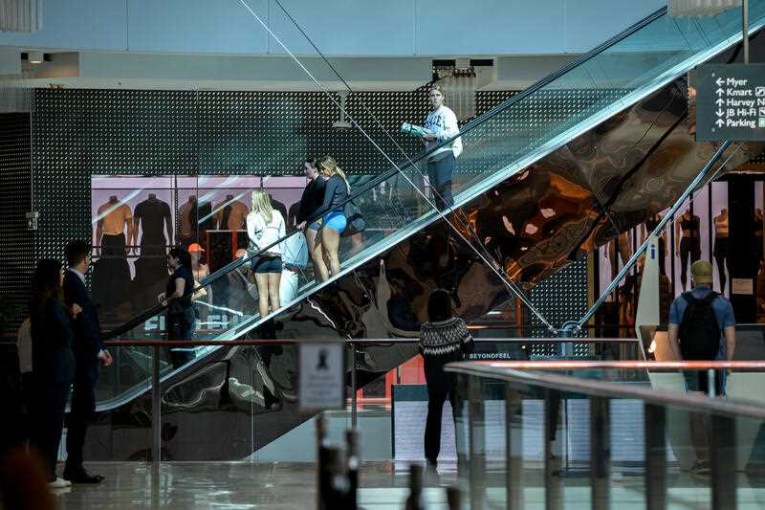Tried-and-true messages to go from strength to strength in election campaign

Keep in mind two political axioms for the six weeks ahead:
- You can’t fatten the pig on market day (an Aussie special, oft repeated in Liberal circles, apparently originating from the DLP’s Jack Kane, circa 1960s); and
- All politics is local (dating back to journalistic political analysis from American Byron Price, of the Associated Press, in 1932).
These principles will guide the election strategies of the major parties as they each battle for an historic outcome, no matter who wins.
They mean that each leader will:
- Draw on the traditional strength of their brands (for the Coalition, the economy and national security represent the hoariest hogs, while Labor’s swole swine are health/aged care and industrial relations); and
- Work to shake as many sanitised hands as humanly possible (fewer than 50,000 voters could determine the election) across about 20 marginal electorates.
When it comes down to the dirty numbers, Labor is facing an uphill battle to achieve a swing of between 3 to 3.5 percentage points in marginal electorates to have a chance at sweeping up enough seats (at least seven) to govern in majority.
By margin, the Coalition is in a much better place to pick up tenuously held incumbent Labor seats.
For reference, Gough Whitlam achieved a uniform 2.5 percentage point swing with the famous “It’s Time” campaign in 1972.
The ALP picked up eight seats from the Coalition to win government after 23 years of Liberal dominance. Interest rates were high and rising (7 per cent at the time) and even Rupert Murdoch’s The Australian was in favour of a change of government.
So far, Anthony Albanese has eschewed the Whitlam-esque revolutionary image and has self-styled as a Hawke 2.0.
But Bob Hawke came to power in a landslide, gaining 24 extra seats in a time of economic peril.
Are Australians really so disillusioned and dissatisfied with the incumbent this time around? With the economy bouncing back and Albanese’s day-one rates blunder, I wouldn’t think so.
The ALP is employing a strategy that draws on the perceived values of ordinary Aussies. Its watch word will be “fairness”. You heard it first-up in the budget reply speech (notably devoid of costings).
This appeal comes with form. The Opposition Leader’s inner circle draws heavily from the 2017 Australian Marriage Equality campaign team, which led a nation to support same-sex couples, not because of love and a fairytale ending (that schmultzy schtick only works on our northern hemisphere ANZUS partners apparently), but through appeals to the Aussie fair go.
Will it align closely enough with promises to fix the aged-care system (at an undisclosed cost) this time around?
Messaging is no accident, of course – it is based on extensive research. As are all successful campaigns. Havas’s own research with YouGov in December 2021 showed that egalitarianism and equal opportunity for all still rate highly as important values among Australians of all age groups.
Scott Morrison’s slightly tautological (yet characteristically memorable) contribution, “If you have a go, you get a go,” captured this spirit after the last election.
A known gladiatorial campaigner, Morrison will be accompanying Liberal locals on the hustings with a determination that only faith (and a highly tactical campaign team) can sustain. He is focused on the indisputable jobs and growth delivered in government and the tangible impact of Josh Frydenberg’s budget announcements on household budgets.
The ACCC has already confirmed that reduced wholesale fuel prices are being passed on to customers with significant falls in prices.
Like in 2019, Morrison’s messages are aimed squarely at winning support in outer-suburban electorates and major regional centres with policies to ease cost-of-living pressures and offer hope in the way of secure employment.
A notable exception, in waterfront urban seats where cost-of-living pressures feel very different, modern Liberals have been localising branding and trotting out their own election-primed piggies in the community, talking about legitimate wins from inside the tent on the environment (particularly the achievement of a net-zero commitment) and LGBTIQ+ student rights.
And finally, in a strategy that fully exploits the local while relying on national fundraising and commitment to a Climate200 message, the ‘Independent’ candidates are seeking to hold the balance of power in the House of Representatives.
Drawing from a similar pool of donors, they have the capacity to flood their electorates with individual campaign material.
Candidates Allegra Spender and Dr Monique Ryan have each spent more on their Google political advertising than most state parties.
And although many of them are running in electorates with the lowest Labor votes in the country, they may find themselves with the historic power to deliver an Albanese government.
Jacqui Munro is a public affairs consultant by weekday and can be found campaigning in Liberal blue on weekends








